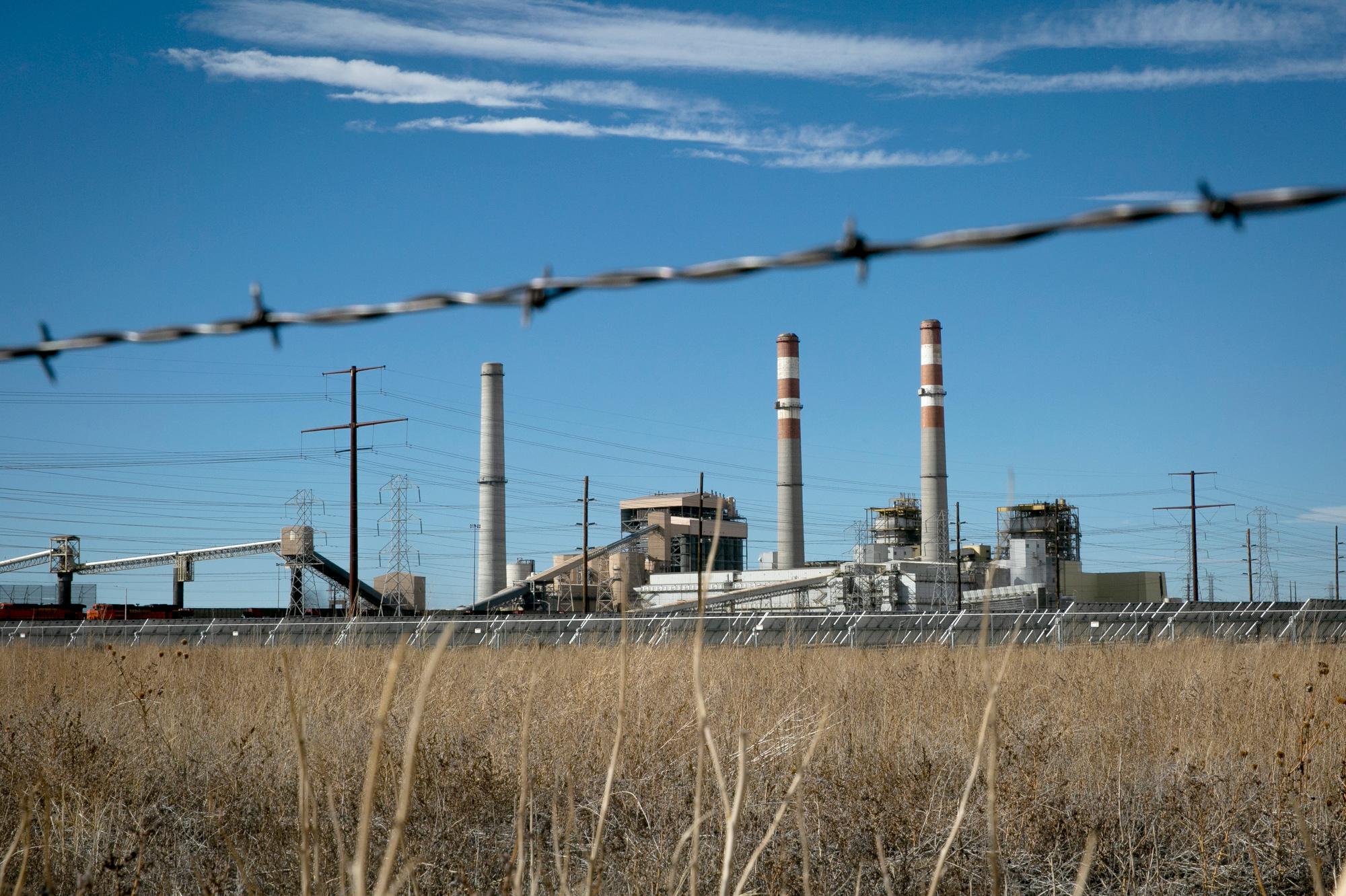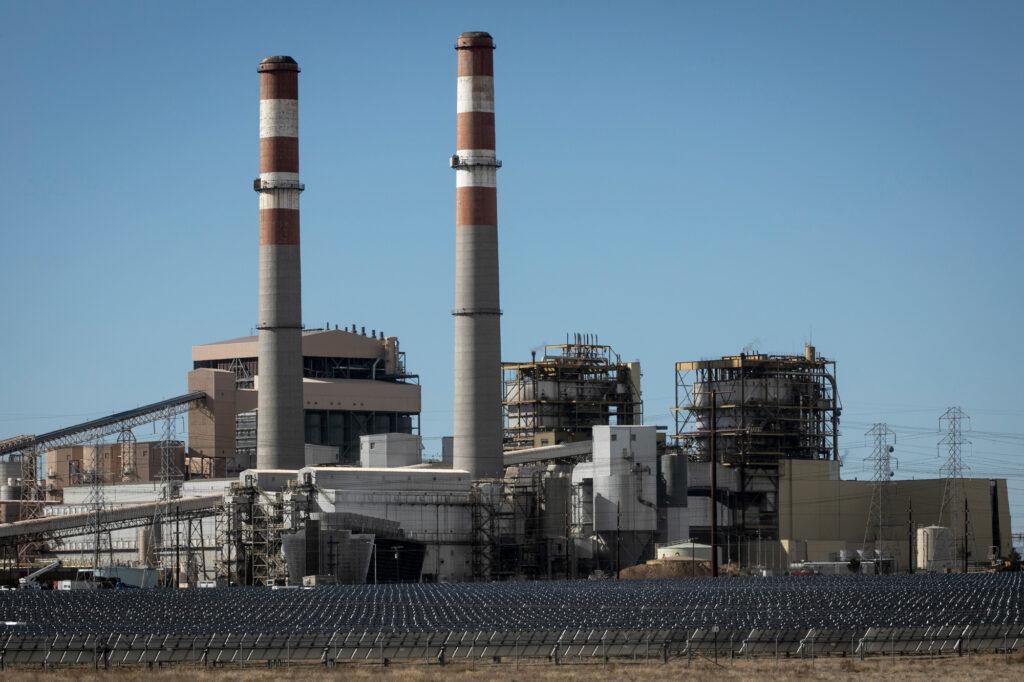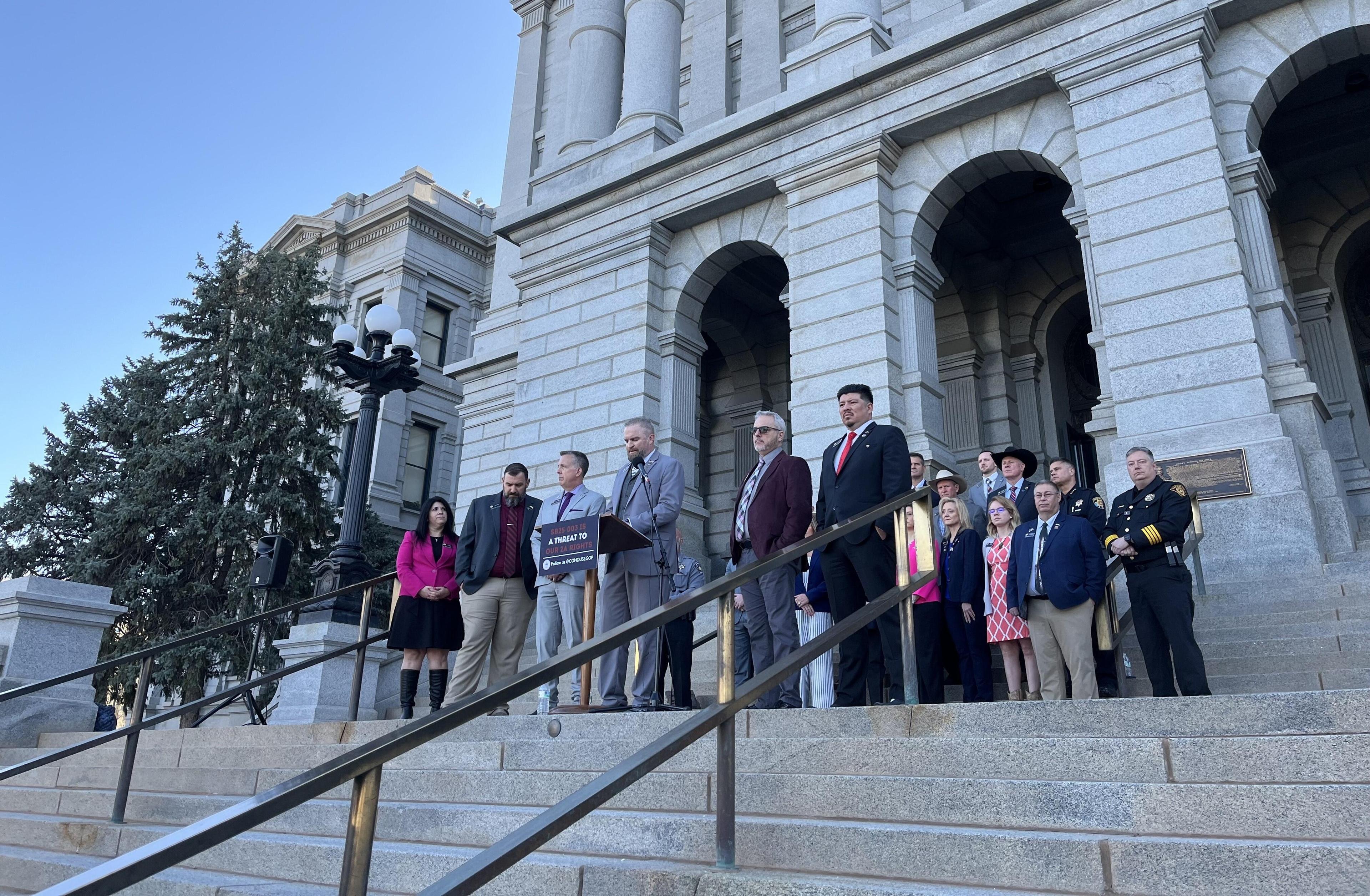
Xcel Energy, Colorado’s largest utility, is doubling down on renewable energy, but that doesn’t mean it’s ready to quit natural gas.
On Wednesday, the company released details on its upcoming Clean Energy Plan, which it will submit to state regulators in March. The outline promises to cut the company’s carbon dioxide emissions 85 percent below 2005 levels by 2030. To get there, Xcel plans to double its renewable energy portfolio in Colorado and stop using coal power entirely by 2040.
The plan comes in response to a 2019 state law demanding rapid emissions reductions from Xcel. CEO Ben Fowke said the plan shows how the Minnesota-based company will not only meet those requirements but surpass them.
“It provides the blueprint for the nation on how we can achieve remarkable carbon reductions while preserving affordability and reliability,” Fowke said.
What the plan doesn’t clarify is the future of natural gas in Colorado.
Xcel, like other utilities, hopes to use natural gas to supply reliable power even as renewable sources fluctuate with the weather. Meanwhile, environmental advocates say new technologies could meet the same need without locking in decades of greenhouse gas emissions.
The proposed plan from Xcel Energy calls for 1,300 megawatts in “dispatchable” generation to balance the power supply. Alice Jackson, the president of Xcel Energy Colorado, told CPR News technologies like hydrogen fuel or battery storage can’t meet that need right now.
“We know they’re wrong about that,” Jackson said. “The natural gas facilities that are on the system — and will be part of the mix even in 2030 — are necessary to supply that 24/7 resource our customers depend on.”
Jackson said those additions would help the utility transition away from coal power. Prior to the latest plan, Xcel planned to operate the newest unit of its Comanche Generating Station in Pueblo until 2070. Just 11 years after building Comanche Unit 3, Xcel has now proposed it will retire it 30 years ahead of schedule. The two older units of the power plant will close by 2025.

Rather than shutter the Pawnee Generating Station in Brush, Colorado, the new plan proposes converting the 505-megawatt facility to natural gas in 2028. The plants had previously been set to retire by 2041. The latest plans also confirmed Xcel will close the Hayden Generation Station in northwest Colorado by 2028.
Those planned retirements aren’t happening fast enough for Anna McDevitt, a senior representative for the Sierra Club’s Beyond Coal Campaign. The environmental group recently released a report grading utilities on their progress toward their own clean energy goals. It gave Xcel Energy a C grade, partially because it planned to operate the Pawnee and Comanche stations past 2030.
McDevitt notes no other Colorado utility plans to operate a coal plant past 2030. She worries new natural gas plants, including the converted Pawnee facility, could harm the climate and Xcel customers. If cheaper options become available or governments crackdown on emissions sources, ratepayers could get stuck with those facilities' costs.
“We just don’t want to see any gas in there. That’s just going to end up costing us a lot of money in the future and hurting the climate more,” McDevitt said.
During a news conference, Gov. Jared Polis praised the company for plans to retire coal plants by 2040, but added that “given the high cost of coal, that's likely to occur even sooner.”
Other environmental advocates said new natural gas assets aren’t guaranteed.
Erin Overturf, the deputy director of the clean energy program for Western Resource Advocates, said Colorado requires utilities to hold a competitive bidding process after regulators approve a request for new electricity resources. Under the system, companies will compete to supply Xcel’s demand for dispatchable power sources, like fast-ramping natural gas plants.
“There will be an opportunity for clean resources to compete,” Overturf said. “So you might see things like green hydrogen or other kinds of energy storage that could be used to fill that need.”
Jackson said she isn’t closing the door to other options. She expects natural gas will be the most cost-effective way to guarantee reliable power but said the last few years prove technology can change quickly.
“If we can get more renewables on the system in a reliable manner, we're going to figure out the way to do it,” Jackson said.
Editor's note: This story has been updated to more accurately describe fast-ramping power sources.









